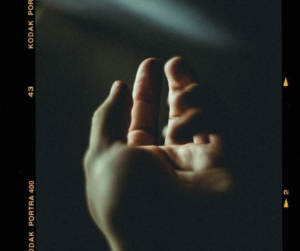
Somewhere within her there is a little girl of eight. She waits for her mother to return from work, scared of the scolding her report card will beget, yet secure in the love and forgiveness that will inevitably follow. She listens to her father at the dinner table as he talks of his clients and their problems, the gentle wisdom he imparts daily underlined by the kindness flowing through his veins. At night, she weaves dreams around amorphous futures before falling deeply and heavily into slumber’s arms.
Somewhere within her, there is a rebellious teenager of sixteen. She curses her parents under her breath, planning elaborate schemes to hoodwink them and following through with none. Her friends are her life and she spends hours on the phone with them, talking about everything and nothing, all at once. She nurses a crush on the neighbourhood boy, watching him covertly as he walks his dog in the evening. She ignores him on the street when he smiles at her, because “good girls” don’t return male attention. But she is quietly devastated when he finds himself a pretty girlfriend, someone far prettier than her.
Somewhere within her is a young woman of twenty-one. She stands on the threshold of her adult life, ready to embark upon an adventure. Excited, nervous, unprepared, she is sad to leave home but wondrous at the possibilities ahead of her. “This,“ she whispers to herself, “is when I can truly begin to live on my own terms.” It’s not until much later that she realises that with freedom comes responsibility. And bills. Lots and lots of bills.
Somewhere within her is a thirty-year-old new mother, cradling her month-old baby, who doesn’t stop crying. Exhausted, she cries alongside. Surrounded by men – husband, father, father-in-law – who are no good to her at a time like this, she yearns for a woman’s touch, someone who will reassure her that this too shall pass, that childbearing and rearing isn’t an impossible task. There is no one who can replace her mother, who is long gone. She misses her desperately, the hollowness inside threatening to engulf her. Friends step in, clumsily, but they comfort her far more than the men can.
Somewhere within her is a forty-year-old who still looks young and alluring. No longer in love with her husband, she enjoys the attention that other men give her. She flirts – coy and cooing, revelling in the excitement and danger of uncharted terrain. In the dying embers of her youth, she feels alive again. No longer strait-jacketed by society’s mores and values, she wants to soar above the labels of wife and mother. She wants to forge ahead in her career, eager to shed the ties that hold her back – friends and family who caution and counsel her. She wants to define herself as someone important, someone worth knowing, someone others aspire to emulate.
Somewhere within her is a fifty-year-old divorcee who doesn’t know who she is anymore. Her husband has left, the children have moved away; the once dazzling career has fizzled; the paramours have melted away, and no, she isn’t someone important or worth knowing. She is just another anonymous woman living an anonymous life, searching for love on the internet. Her single status has left her friendless, a scarlet letter invisibly tattooed on her person declaring that she might poach on other women’s territories. She is afraid of loneliness, of old age, of dying.
Somewhere within her is a sixty-five-year-old grey-haired granny who is slightly hard of hearing. She, who had made peace with her singlehood before finding love with her husband again. They have both wandered and returned, this time to a quieter, more sedate love, one that will last the distance. Suddenly, her life is full to the brim with children, her children’s children and the school runs and coffee mornings that she missed out on the first time round chasing a career. She marvels at life’s bounty, crossing her fingers daily, praying that her luck doesn’t run out again.
Somewhere within her is a seventy-two-year-old widow, crying over wasted years, bloated egos and stupid, ridiculous, futile arguments. She misses everything about him, even his habit of leaving the cap off the toothpaste tube. Her children rally around her, reminding her of the good times, of what she still has, of what they created together. She wonders how her own father managed for two decades without her mother, how he carried on being a parent while putting a full-stop to being a spouse? She knows that the world still turns and she must turn with it, as others before her have done.
Somewhere within her is an eighty-five-year-old woman with arthritis, a heart condition and two hip replacements. She no longer cares she isn’t someone important, because she knows that in her own small way, she is. There aren’t many of her peers left, but those that are still meet monthly for a long and leisurely lunch. They discuss their families, the state of the planet, their misspent youths and laugh as only the young or the very old can – uninhibited and unashamed. They don’t understand the world anymore, feeling out of touch with everything, but they don’t care what anyone thinks of them, either. They sit comfortably in their wrinkled skins, free from the shackles of youth and vanity.
Somewhere within her is a ninety-year-old woman ready to give up her mortal coil. Life is a drag, and the only thing she looks forward to now are the rare visits from her great-grandchildren. Adults bore her while children delight her. In their innocence, she sees the only remaining purity in an increasingly depraved and insane world. Every morning, she wakes up and sighs that she is still alive. She prays for death; she invites it into her dreams, hoping it will step out of them and into her life someday soon. She waits and waits and waits, her hands crossed in her lap, her coffee cooling on the table beside her.






